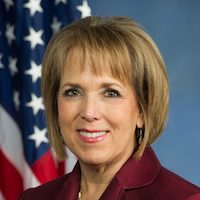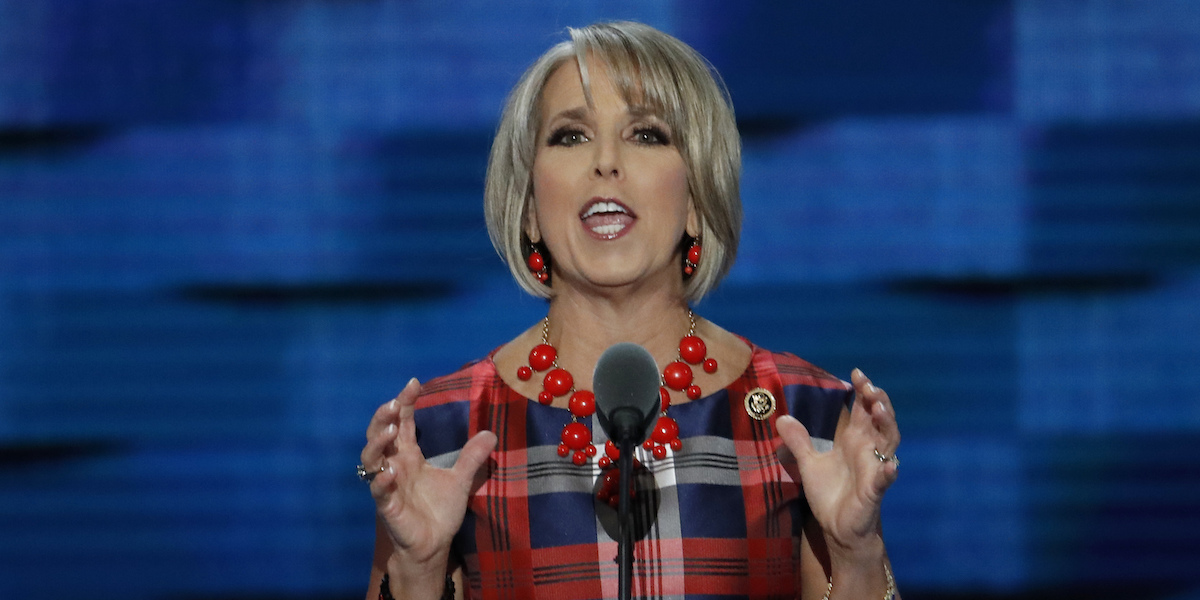
Washington, D.C., March 17 – Nationwide 111,804 people with disabilities got new jobs last year, including 7,921 new jobs for New Mexicans with disabilities. New Mexico now ranks 43rd in the nation in terms of the state’s employment rate for people with disabilities. Overall, there are 169,264 working-age (18-64) New Mexico natives with disabilities and out of that number, 57,005 have jobs. The newly published 2018 Annual Disability Statistics Compendium shows New Mexico has an employment rate of 33.7 percent for people with disabilities. Further analysis by the nonpartisan advocacy group RespectAbility shows that job gains for New Mexicans with disabilities have dramatically increased compared to the prior year.
Gov. Michelle Lujan Grisham has been quick to signal her deep commitment to support the disability community in New Mexico. Among her first actions as Governor was to appoint a disability rights lawyer to lead the state’s Department of Aging and Long-Term Services. So far this year, Gov. Lujan Grisham has also pushed hard to expand “funding for services to individuals with developmental disabilities.”
The New Mexico Department of Health (NMDOH) has made a special effort to celebrate this March as Developmental Disabilities Awareness Month. The Department’s goal is to promote respect for individuals with intellectual and developmental disabilities as well as building awareness of the challenges faced by New Mexico’s citizens with disabilities. Public awareness and support are crucial to ensuring that people with disabilities are welcome in their communities and in the workforce.
“Our nation was founded on the principle that anyone who works hard should be able to get ahead in life,” said Hon. Steve Bartlett, current Chairman of Respectability, who co-authored the Americans with Disabilities Act when he was in Congress. “People with disabilities deserve the opportunity to earn an income and achieve independence, just like anyone else.”
A National Issue
Beyond New Mexico, how is the workforce changing for people with disabilities? What is driving these changes? The answer is simple. According to Vincenzo Piscopo of the Coca-Cola Company: “People with disabilities bring a unique skill set that it is very valuable for companies.” He went on to add, “As it relates to employment and competitiveness in the workplace, we have to stop thinking of disability as a liability and start thinking of it as an asset.”
Brand-name companies such as JP Morgan Chase, Coca-Cola, Ernst & Young, IBM, Walgreen’s, Starbucks, CVS and Microsoft show people with disabilities are successful employees. These companies also know that these workers improve the bottom line. “People with disabilities bring unique characteristics and talents to the workplace,” said RespectAbility President Jennifer Laszlo Mizrahi. “Hiring people with disabilities is a win-win-win for employers, people with disabilities and consumers alike.”
As more companies hire employees with disabilities, conversations are shifting to focus on inclusion. “Disability inclusion is no longer about automatic doors, curb cuts, ramps, and legislation,” says Jim Sinocchi, Head of the Office of Disability Inclusion at JP Morgan Chase. “Today, the new era of disability inclusion is about “assimilation” – hiring professionals with disabilities into the robust culture of the firm.”
According to the Census Bureau, there are more than 56 million Americans living with a disability. Disabilities include visible conditions such as spinal cord injuries, visual impairments or hearing loss and invisible disabilities such as learning disabilities, mental health or Autism.
An Election Issue
Voter research, conducted by RespectAbility, shows how disability issues connect to all aspects of American life. “Fully three-quarters of likely voters either have a disability themselves or have a family member or a close friend with disabilities,” said former Representative and Dallas Mayor Steve Bartlett. “People with disabilities are politically active swing voters, and candidates should take note of the important issues they care about.”
As 2019 moves into 2020 and the political campaign season heats up, continuing job growth for people with disabilities will be a crucial indicator of the health of the American economy.

Be First to Comment